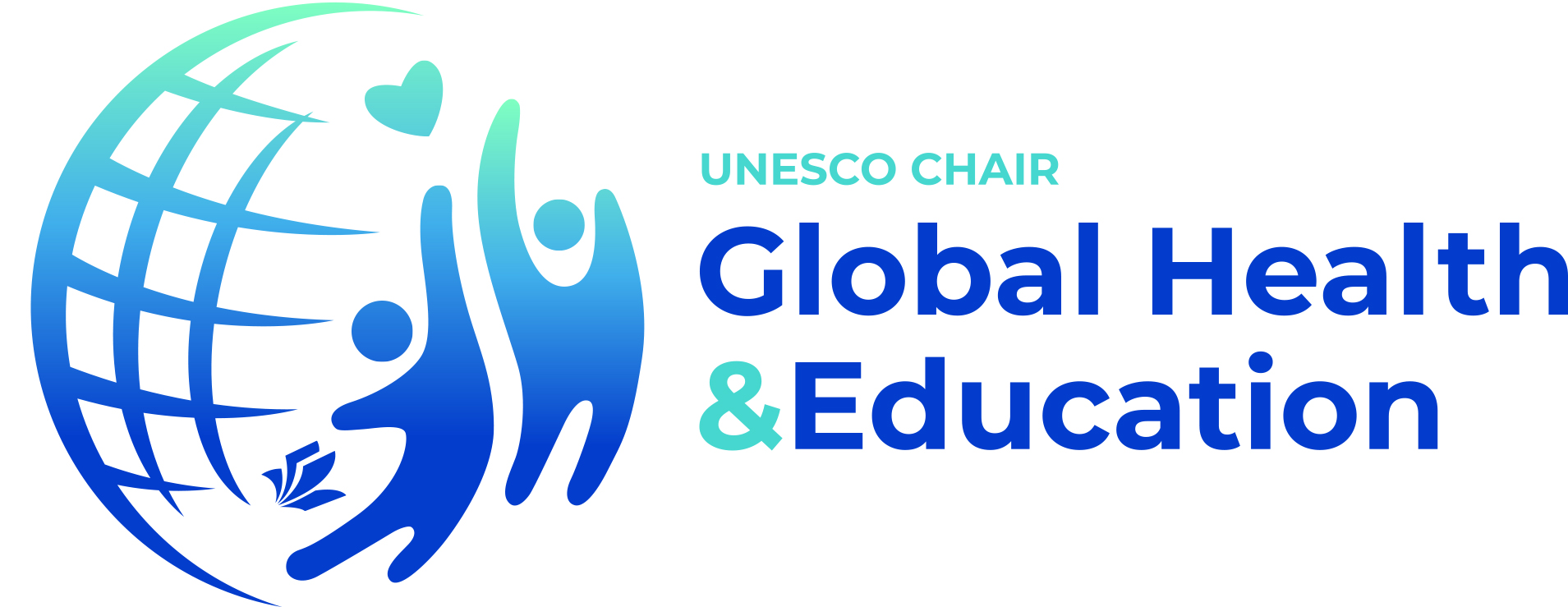The core values of the UNESCO Chair Global Health & Education include:
- Every child and young person has a fundamental right to education, well-being and a healthy life;
- Non-discrimination, solidarity, equality of opportunity and treatment, and universal access to education, health and well-being underpin all activities of the Chair;
- Development of autonomy of children and young people in order to prepare them to be free and responsible citizens in democratic processes of decision-making;
- Active involvement of all children and young people, enabling them to work as powerful agents of healthy change in their own life, in schools, in families and in local communities;
- Celebrate, value and learn from global diversity of knowledge, perspectives and experiences;
- Cultural pluralism and appropriateness of activities and recommendations are recognized and taken into account as health and education of children and young people are rooted in different socioeconomical, environmental, political, cultural and religious contexts.
The principles of the UNESCO Chair Global Health & Education include:
- Holistic approach. Activities should view health, well-being and education as mutually interdependent and be addressed together;
- Global perspective. Activities will (1) be carried out in genuine collaboration between partners from different parts of the world and (2) have clear global relevance;
- Coordinated intersectoral approach. Linking the different settings of children’s life and promoting intersectoral seamless collaboration between key partners and stakeholders to facilitate optimal synergy and effectiveness for young people’s health and education;
- Cultural sensitivity and ethical acceptability. New and innovative global models developed by the Chair will have to be carefully operationalized according to various geographic, cultural and religious contexts;
- Diversity of knowledge sources. Knowledge from various sources (individuals, communities and scientific and administrative institutions) has to be taken into account and articulated in a coherent way;
- Effective participatory approaches. Participation should be considered crucial in research, training and practice, meaning that stakeholders and users at all levels will be actively involved in developing, testing and implementing new models;
- Capacity building. All stakeholders’ competences, health and development will be considered fundamental and will be addressed in close relation to the innovative approaches developed by the Chair;
- Integrated implementation. New and innovative approaches introduced to schools and other educational settings should align with these sectors’ core business (‘add-in’) and not be an extra burden (‘add-on’) for professionals;
- Diversity of research approaches. Research will aim to (1) develop new and effective approaches, (2) test their feasibility and effectiveness and (3) implement and upscale new interventions. The three steps are closely related and should not be viewed as a strict linear process.
Read the Framework UNESCO Chair.
